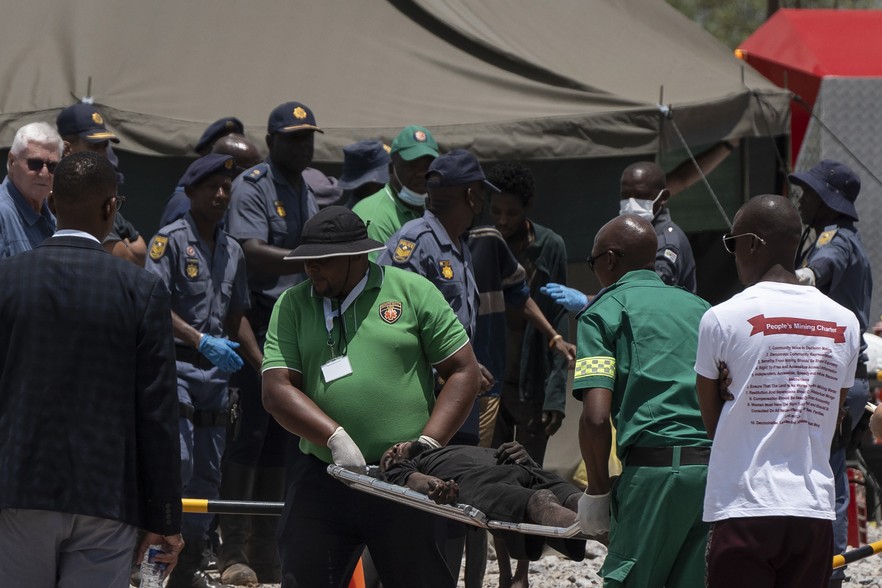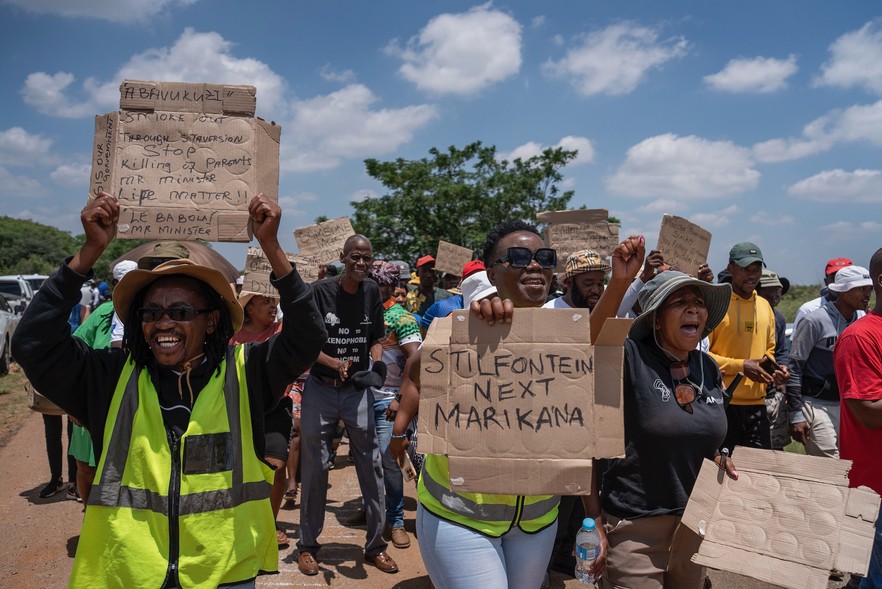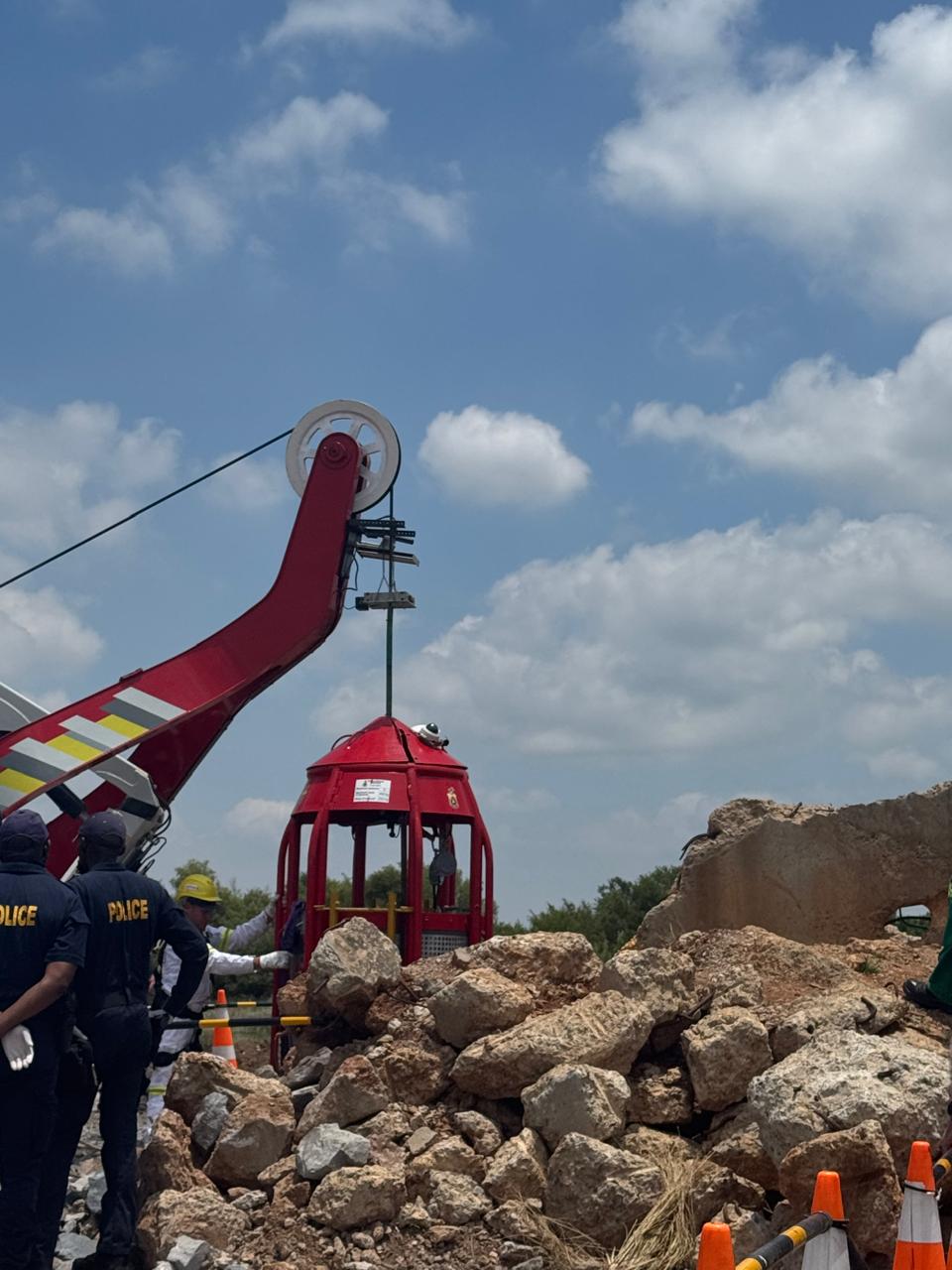Rescued Stilfontein miner dies in hospital due to gastroenteritis & dehydration! The North West Provincial Department of Health has confirmed the death of one of the illegal miners rescued from the disused Stilfontein mines.
The deceased, identified as Mr. Koali Rankomo, passed away on Monday around 4 a.m. at Klerksdorp/Tshepong Tertiary Hospital in the Dr. Kenneth Kaunda District.
Details of the Death
Department spokesperson Tshegofatso Mothibedi stated that Mr. Rankomo was admitted to the hospital after being diagnosed with gastroenteritis and dehydration.
“Gastroenteritis, an illness caused by infection and inflammation of the digestive system, was the primary diagnosis,” explained Mothibedi.

Rankomo was among 33 illegal miners admitted to the hospital under police guard after their rescue from the disused mine in Stilfontein last week. The national rescue operation, launched following a court directive, uncovered a grim situation in the mine, where miners had been holed up underground for months.
Currently, 32 suspected illegal miners remain under medical care at the facility, with police maintaining strict security, Mothibedi confirmed.
Mass Casualties Among Zama Zamas
The tragedy at Stilfontein has drawn attention to the plight of zama zamas—illegal miners who risk their lives in abandoned mines to eke out a living.
Last week, reports surfaced that 78 bodies had been recovered from the mine following a Pretoria High Court order for rescue operations to commence. Survivors and workers’ unions have blamed starvation for the deaths of many miners, sparking widespread outrage.
Families Plan Legal Action
The families of the deceased miners are reportedly planning to sue the government for damages. Their legal representatives allege that state negligence contributed to the deaths of the miners, who were trapped underground for months.

According to the General Industries Workers Union of South Africa (Giwusa), the case is being led by the Mining Affected Communities United in Action (Macua) organization.
“Macua wants the government held responsible for the deaths, arguing that the state failed to adequately monitor and manage disused mines, allowing the tragedy to occur,” said Giwusa president Mametlwe Sebei.
Ongoing Legal Battles
Sebei noted that a Constitutional Court case is underway, with parties exchanging correspondence and seeking direction from the court to resolve outstanding issues.
“We are working to finalize ongoing cases in the Constitutional Court and Pretoria High Court. At the same time, we are addressing medical care for survivors, the handover of deceased miners’ bodies to their families, and assembling evidence for criminal charges and possible civil claims,” Sebei stated.
Call for a Commission of Inquiry
Giwusa has called for the establishment of an independent commission of inquiry to investigate the circumstances leading to the Stilfontein tragedy.
“We demand a thorough investigation into the events leading to this massacre, the conditions underground, and the actions of all responsible parties. This includes holding government officials, police leadership, industry actors, and morally bankrupt media outlets accountable,” the union said in a statement.

The proposed inquiry aims to ensure transparency and accountability, shedding light on the unsafe working conditions and alleged neglect that contributed to the disaster.
Government’s Role Under Scrutiny
The Stilfontein tragedy has intensified criticism of the government’s handling of disused mines and illegal mining operations. Activists argue that the lack of monitoring, combined with poor socio-economic conditions in mining-affected communities, has driven individuals to risk their lives in abandoned mines.
The Broader Impact
The deaths at Stilfontein have sparked calls for urgent reforms in mining regulations and increased support for impoverished communities. Many hope that the incident will serve as a wake-up call for authorities to address the root causes of illegal mining, from unemployment to systemic inequality.
As the nation mourns the loss of lives in Stilfontein, survivors and families of the deceased miners continue to seek justice, demanding accountability from those in power. The tragedy stands as a stark reminder of the human cost of negligence and the urgent need for systemic change in South Africa’s mining sector.
















